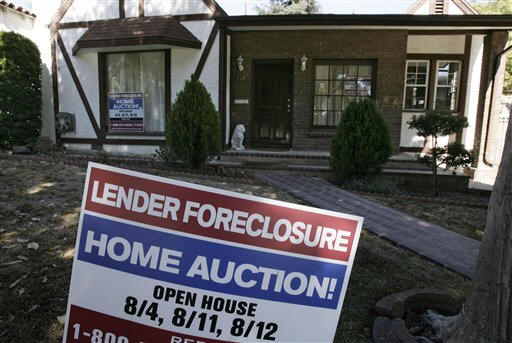We in the industrialized world, and U.S. citizens in particular, are incapable of envisioning an economy that isn’t growing. Within this generation, however, we are likely to see the Triple Threat cause our economy to stop growing and begin to shrink. What will that be like?
When the economy takes the full hit from the Triple Threat, petroleum prices will increase. Those who commute long distances daily to work will be the canaries in the coal mine. We will see the disposable incomes of this group decrease first, as more workers either (a) pay more for housing close to where they work (b) opt for lower-paying jobs closer to where they live, or (c) continue commuting and divert more of their income to petroleum.
Anecdotally, we met our first example recently when we visited with May, our server at a small barbeque restaurant in rural Alabama. This was her first day, she told us, although she had been a waitress at a restaurant nearby for several years. Had May left the other restaurant? No, she now worked for both, shuttling between the two based on who needed her when. She had worked as a waitress at the other restaurant for extra money to supplement her job in the city nearby, but recently gave up her city job because gas was costing her too much. She will make considerably less now, but enough to get by, and the high gas bills are a thing of the past.
The economy’s large enough not to feel May’s decision too severely, but when 5 million, or 20 million, or 50 million others join her (and they will), growth will slow.
 Everyone who reads knows about the contraction in real estate in the U.S. As we write this, home foreclosures are up in the Atlanta market (despite Atlanta’s healthy economy) by about 150% in less than a decade. And economists estimate that about $800 billion in loans will come up during the years 2007-08 for readjustment of their interest rate, and of course every one of the monthly payments for those loans will be increasing. The U.S. President and Congress, distracted by the oil war the U.S. is now trying to end in Iraq, have paid little or no attention to this ticking time bomb. Soon they will have no choice.
Everyone who reads knows about the contraction in real estate in the U.S. As we write this, home foreclosures are up in the Atlanta market (despite Atlanta’s healthy economy) by about 150% in less than a decade. And economists estimate that about $800 billion in loans will come up during the years 2007-08 for readjustment of their interest rate, and of course every one of the monthly payments for those loans will be increasing. The U.S. President and Congress, distracted by the oil war the U.S. is now trying to end in Iraq, have paid little or no attention to this ticking time bomb. Soon they will have no choice.
Loan delinquency rates will soar, probably to something in excess of 20%. Lenders will clamor to be “relieved” from the logical result of their own greed, and your President and Congress will oblige, but this will not prevent a dramatic slowdown in the economy. Think housing starts down by 50% or more, and think unemployment rates in the building trades of 15% or higher.
Now that we’re on the subject, let’s talk more about banking. The core concept supporting the profitability of a bank is its ability to loan money and receive that money back with interest. So let’s place that bank in an economy that’s not growing and see how it makes money. A young woman who wants to open a hardware store comes to the bank and asks for a loan of $50,000 to fix up an empty storefront (these should be plentiful) and stock her store. The bank inquires where her customers will come from. in an economy that doesn’t grow, she’s not going to expand the market for hardware, so she must be hoping to divert customers who are now buying their hardware somewhere else. The bank must satisfy itself that her business plan is good enough, her business acumen sharp enough, that she will succeed at the expense of one or more of her competitors. If she doesn’t, her business will fail, and the bank will lose its money.
Or assume that a young married couple applies for a loan to buy a house. The bank cannot assume, as banks always have, that the young couple’s income will keep increasing. In a no-growth economy, it must satisfy itself that they can pay back the loan, slowly and steadily, without assuming a big increase in their future incomes. The bank may have to give them the bad news that they can’t afford the house of their dreams and will need to set their sites lower.
This careful, conservative version of banking is a far cry indeed from the go-go world of hedge funds, derivatives, and easy credit that we 21st century Westerners have come to expect. A few bankers and entrepreneurs will adjust to it quickly and thrive; most will blindly assume that what has worked in the past will work in the future and will be punished, brutally, when the harsh reality of no-growth economics comes calling.